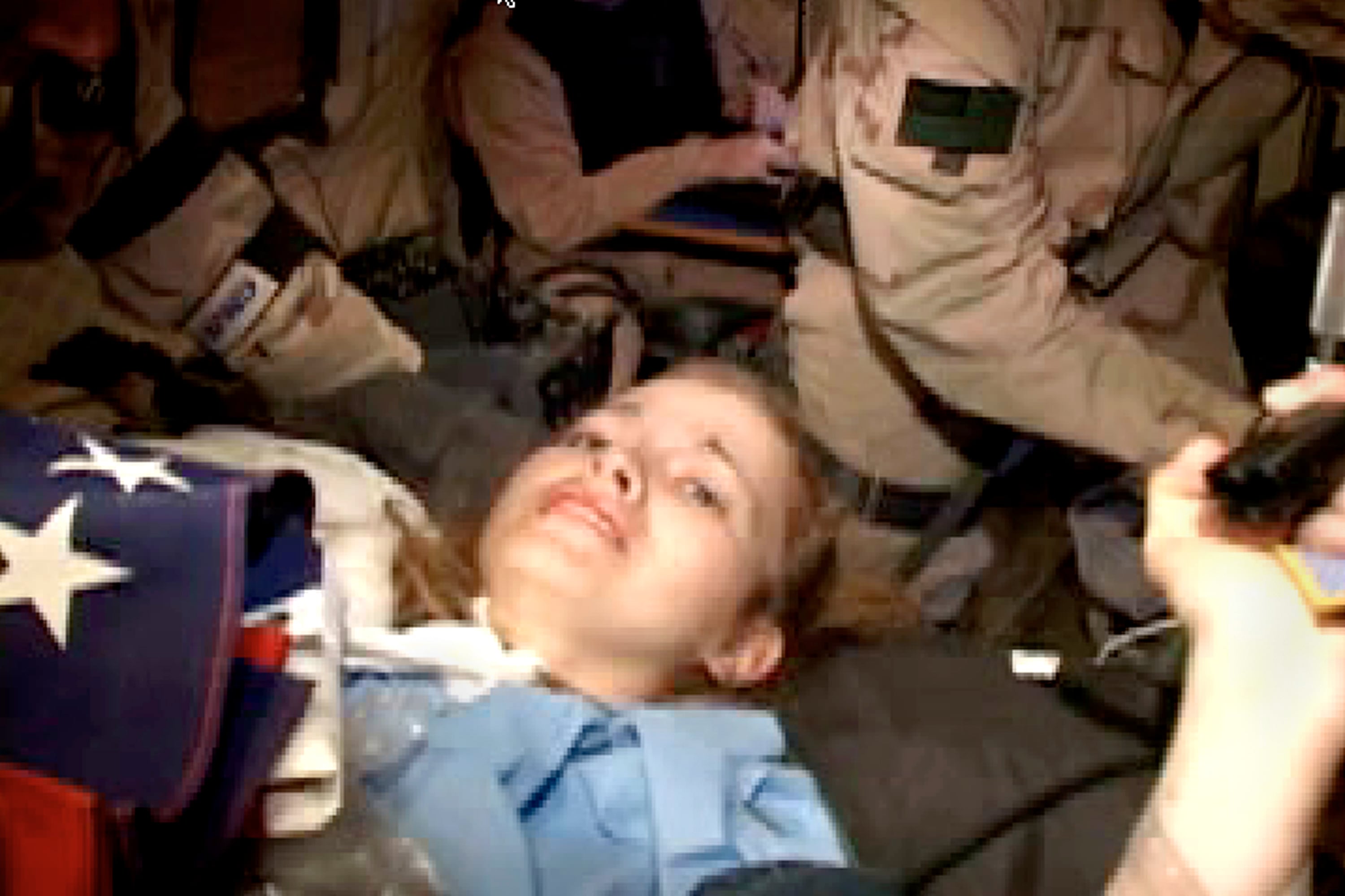WASHINGTON — The Navy awarded Silver Star medals in secret to two SEALs for their roles in the controversial rescue of Army Pvt. Jessica Lynch in Iraq in 2003, according to newly released documents.
The tone of the citations differs from the majority of the more than 100 awards for secret valor that the Navy awarded to SEALs and Marines who fought fierce battles from Benghazi to Ramadi to the mountains of Afghanistan since 9/11 terror attacks. The names of the SEALs were redacted, and Lynch is not named. However, the citations refer to the date and place she was rescued.
Circumstances surrounding Lynch's rescue, and whether the military trumped them up to bolster support for the war, prompted a Pentagon probe and congressional hearings.
Dwight Mears, a former West Point history professor who researched the military awards process, reviewed the citations and noted the contrast between those issued for Lynch's rescue from an Iraqi hospital and those for later missions. The language in the operation to rescue Lynch was "a little over the top," he said.
"These read very much like embellished evaluation reports, not citations for gallantry in action," Mears said.
The citation for both men refer to their leadership of "a brilliant surgical air and ground assault to seize key areas of the hospital." One citation goes on to state: "The strategic significance of the first successful rescue of a U.S. POW is epic as it devastated Iraqi resolve and bolstered U.S. and international support for the campaign."
That compares to the spare language used to describe the hostage rescue in 2012 of American doctor Dilip Joseph in Afghanistan, an operation that resulted in Navy SEAL Ed Byers being awarded the Medal of Honor, three of his teammates receiving the Silver Star and one SEAL killed during a fierce firefight.
The citation for Byers, reads, in part: "His bold and decisive actions under fire saved the lives of the hostage and several of his teammates." Another SEAL, who burst into the hideout, killed one of the captors, dragged out his mortally wounded comrade and returned to kill the last militant, "saved the lives of several of the hostages and several of his teammates, enabling the strategic success of the mission," according to his citation for the Silver Star.

Pfc. Jessica Lynch is loaded into a military helicopter on April 2, 2003, on her way out of Iraq. Lynch was rescued in an early morning raid on a hospital deep in Iraq.
Photo Credit: CENTCOM via Getty Images
The narratives in the Lynch rescue lack examples of such individual feats of heroism — the key factor in awarding the medals, Mears said. The leadership described in the citations is expected as a matter of duty and normally inappropriate for an award of valor.
Mears suggested that the timing of the awards, at the beginning of what was expected to be a short war, may have prompted senior leaders to push for them.
"This would potentially limit future opportunities for valor and associated recognition, perhaps spurring a race to submit recommendations before the end of perceived combat operations," Mears said. "Ironically, it's a safe bet that the same special operators who received those awards under seemingly dubious circumstances likely went on to participate in other operations with far more potential for heroism."
Lynch's rescue was the subject of congressional hearings and an investigation by the Pentagon Inspector General over concerns raised by members of Congress that it might have been staged for public relations purposes. In testimony in 2007, then-Inspector-General Thomas Gimble found that the rescue, which was filmed, was "a valid mission to recover a U.S. P.O.W. under combat conditions."
Lynch had been captured March 23, 2003, days after the invasion of Iraq, after her convoy got lost and was ambushed. Lynch was wounded and taken to a hospital in Nasiriyah, where she was rescued on April 1. Initial reports that Lynch fought her captors viciously turned out to be false; she had been badly wounded in the ambush, and her weapon had jammed.
Lynch suffered shattered bones and a damaged spine in the attack. Her captors later sexually assaulted her. She was taken to Saddam Hussein General Hospital in the town and was being cared for there when the special operations force descended on the building and whisked her away.
The rescue operation involved Navy SEALs, Marines, Army Rangers and Air Force personnel. Gimble told Congress that the troops "received enemy fire from the hospital" and surrounding building but "neutralized" those forces without suffering casualties.
The Pentagon, in February, announced that it would review more than 1,000 service cross and Silver Star medals issued since Sept. 11, 2001, to determine if any were eligible for upgrade. Those medals are the second- and third-highest individual awards the military issues. The Medal of Honor is the highest.









